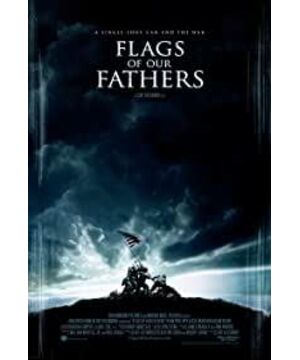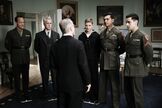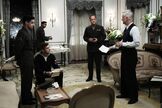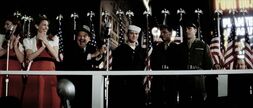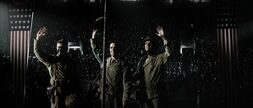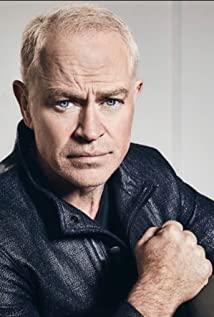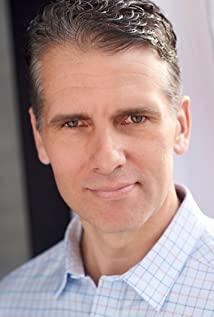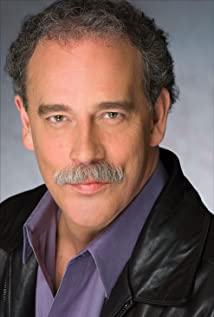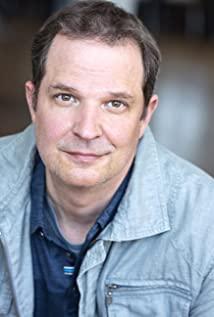History has already commented on the victory or defeat of a war, so there is nothing to reflect on. The old cowboy chose a perspective other than the simple conclusion of justice and evil to re-examine a war. American reflection is not necessarily clever, It's always so new.
There is a barrier that is not easy to pierce between history and reality, perhaps because the barrier is too thick, perhaps because it is too secretive, making it difficult for people to see clearly, perhaps because the lens is slightly cheap, and the truth exists in another way.
The Old Cowboy's "Banner of the Fathers" did not choose a traditional war routine, telling how the US military was deployed, how the Japanese military was deployed, how the US military landed, and how the Japanese army defended. Starting with the famous photos, in the way of memories and memories, it examines a war and the human nature in the war from a new angle.
It is not an easy thing to make a responsible comment for someone who has never experienced war. Those young lives could have enjoyed the sunshine and rain just like you. When they went to the battlefield for justice, they also abandoned themselves. to death.
War is a test of blood and fire, and the value of life is re-evaluated in this extreme environment. The film formed by accidental history has made five ordinary lives reach the peak of honor, and this huge honor belt What gives them life is their inner imbalance, which is also a juncture of the film's focus. They are not the soldiers who raised the flag for the first time, but coincidentally because the photo has become a symbol, enduring the pain in their hearts to shoulder the country The mission of political propaganda, the guilt of facing the embarrassing gaze of the mother of the dead comrade-in-arms, and the difficult survival under the spotlight of the principle after the glory.
For these glorious lives left on the battlefield, the most memorable moment is not the glorious moment when the national flag was raised, but the unknown moment when everyone went swimming together in the sea at the end of the fierce battle.
The film’s attitude towards war reflection is sincere, which is also one of the strengths of American war-themed films—a sense of introspection. From a technical point of view, the narrative method of the film’s use of memories and memories makes the narrative subject less prominent, and the time-space switching appears to be inconspicuous. Scattered, the rhythm is not strong, especially the ending paragraph, the explanation is too hasty, which is really regrettable, but fortunately there is a later "Letter from Iwo Jima" to make up for this shortcoming.
This article was written on 2007-07-13 and can only be published this way for well-known reasons
View more about Flags of Our Fathers reviews


